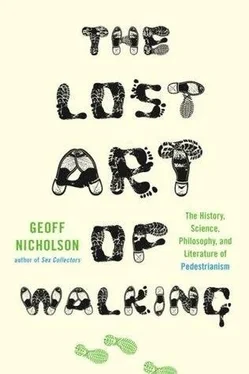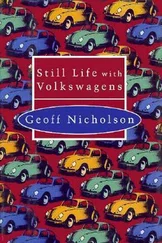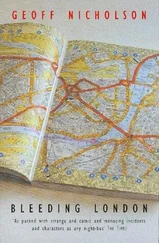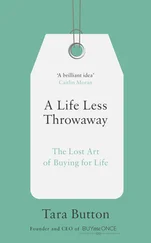Waldie was perhaps channeling Ray Bradbury, author of the dystopic science fiction short story ‘The Pedestrian’, in which the hero is picked up by totalitarian cops who know he must be up to no good simply because he’s a walker.
There are at least two pop songs — ‘Nobody Walks in L.A.’ by Ashford & Simpson, and ‘Walking in L.A.’ by Missing Persons — that express much the same sentiment, although the actual message of these songs is not so much that nobody walks in L.A., but rather that nobody who’s anybody walks in L.A.
Jean Baudrillard, in his book America , writes:
‘As soon as you start walking in Los Angeles you are a threat to public order, like a dog wandering in the road.’
All these add up to a fine and persuasive legend, and as they say in John Ford’s The Man Who Shot Liberty Valance , ‘This is the West, sir. When the legend becomes fact, print the legend’.
♦
I had moved to Los Angeles with my then girlfriend, now wife, a few years earlier. We’d gone there partly for work, and partly in order to live out certain fantasies, both Epicurean and apocalyptic, about California. I admit I didn’t go there for the walking.
We found a place to live, bought a couple of cheap cars, my girlfriend started her job, and I sat in the house, writing as ever, and then doing the sorts of things you do in L.A., going to Musso & Frank Grill, to the Getty, to a couple of Frank Lloyd Wright sites, to the Museum of Jurassic Technology, to the beach. Life was conspicuously good. I had nothing at all to complain about. And I became completely and utterly depressed.
Now, I know what some of you are thinking: ‘Good. Any halfway civilized man who’s lived in Europe or on the East Coast of America and then chooses to move to the vacuous wastelands of Los Angeles deserves to be depressed by the thinness and vacuity of the culture, by the superficiality and prefabricated good looks of the people, perhaps simply by the ease of being in a place where the sun usually shines and the living is too easy’. Well, only up to a point.
I soldiered on through my depression, didn’t do the obvious L.A. thing, which would have been to see a therapist or have some mood-lightening plastic surgery. Instead, I tried to pretend it wasn’t happening. I carried on with my housebound, sedentary writer’s life. My writing was going well enough. I tried to be cheerful but it didn’t work.
And then one day I was sitting gloomily in the sunroom reading the newspaper and I came across one of those ‘recent medical evidence shows’ types of articles. The evidence came from Duke University and it concerned the treatment of depression. The research said that a twenty-minute walk three times a week was better medicine, and did patients more good, than all the antidepressants in the world.
This shouldn’t have surprised me. Robert Burton, author of The Anatomy of Melancholy and a hero of mine, realized something similar in about 1621. He regards walking as a cure for melancholy, and says:
‘The most pleasant of all outward pastimes is that of Aretaeus, deambulatio per amoena loca (strolling through pleasant scenery), to make a petty progress, a merry journey now and then with some good companions, to visit friends, see cities, castles, towns…to walk amongst orchards, bowers, mounts, and arbors, artificial wildernesses, green thickets, arches, groves, lawns, rivulets, fountains, and such-like pleasant places, like that Antiochian Daphne, brooks, pools, fishponds, between wood and water, in a fair meadow, by a river-side…’
He’s free-associating by this point, and you could draw a parallel between the obsessive, indirect yet forward movement of his prose and similar qualities found in the act of walking. The effect is spoiled, however, because although Burton says walking is the most pleasant way of banishing melancholy, he doesn’t think it’s superior to a great many other ways of doing it. He also highly rates watching a battle.
Duke and Burton aside, even I knew that exercise stimulates the production of endorphins, ‘nature’s painkillers’, and the fact was, just about the only exercise I’d ever done, certainly the only exercise I’d ever enjoyed, was walking.
Alight went on.
For most of my adult life I’d lived in London and New York, which, we are constantly being told, are two of the world’s great walking cities. In these places I hadn’t just walked for twenty minutes three times a week, I’d walked every single day, sometimes for hours. It was how I got around. It was how I related to the city. In my spare time I’d head off to some unknown part of town and explore it on foot, alone or with other people.
I frequently met others who did very much the same. There was even a solid literary tradition. In London you had Dickens, De Quincey, Iain Sinclair — in New York you had Walt Whitman, Alfred Kazin, Paul Auster. Other great cities had their own great literary walkers. In Los Angeles it was different. I’d heard the pop songs, read Baudrillard and some John Paul Jones interviews. As far as I was aware back then, there was no tradition, no history, no literature of walking here. I now know that I was wrong (more of that later), but at the time I thought walking in L.A. was a foolish and freakish thing.
Be that as it may, for the sake of my own sanity, I started walking. And the truth is that the moment I started walking, I saw plenty of other people doing the same. There were people dog walking, streetwalking, power walking. There were always tourists, in Hollywood or Santa Monica or taking self-guided tours of downtown. People walked with their kids, kids walked by themselves, old people walked together. There were walkers everywhere.
Some, of course, may have been walking to their cars, having been forced to park some distance away from where they really wanted to be. Some may have walked unwillingly because they were simply too poor to own a car, because they had lousy jobs or were freshly immigrated, or both. Some of the walkers were homeless, pushing shopping carts full of recyclables. A few were simply mad. I joined them. I became an L.A. walker.
♦
I had first set foot in Los Angeles in 1975. I’d got there by hitchhiking. When I was twenty-one years old I crossed the continental United States on foot. Sometimes I think I only ever did it so that sometime later I’d be able to say, ‘When I was twenty-one years old I crossed the continental United States on foot’. It also had something to do with having read a lot, arguably too much, of Jack Kerouac.
The received wisdom about Kerouac back then had him as the king of the hippie hitchhikers. This, as we now know, was inaccurate in almost every way. He wasn’t a hippie, and he wasn’t a king, and although he did a certain amount of hitchhiking, he was just as likely to catch a bus or hop a freight train or be driven by Neal Cassady in a borrowed or stolen car. I was ready to experience all these modes of transport, but my initial plan was to stand by the American roadside with my thumb stuck out to get lifts along the way from Toronto (I had good, dull reasons to start there) to Isla Vista, in California, where I had a semi-legal job lined up.
Today it sounds to me as absurd, difficult, and dangerous a plan as it must have sounded to my father at the time. To be fair to him, he didn’t raise any objections on the grounds of personal safety. After all, he’d run off to join the Royal Navy when he was sixteen, in the middle of World War Two, and found himself in the thick of it on a minesweeper in the Mediterranean. His worries were more on the grounds of practicality.
I remember him saying to me, ‘But what if you don’t get any lifts?’
The idea had literally never occurred to me.
Читать дальше












